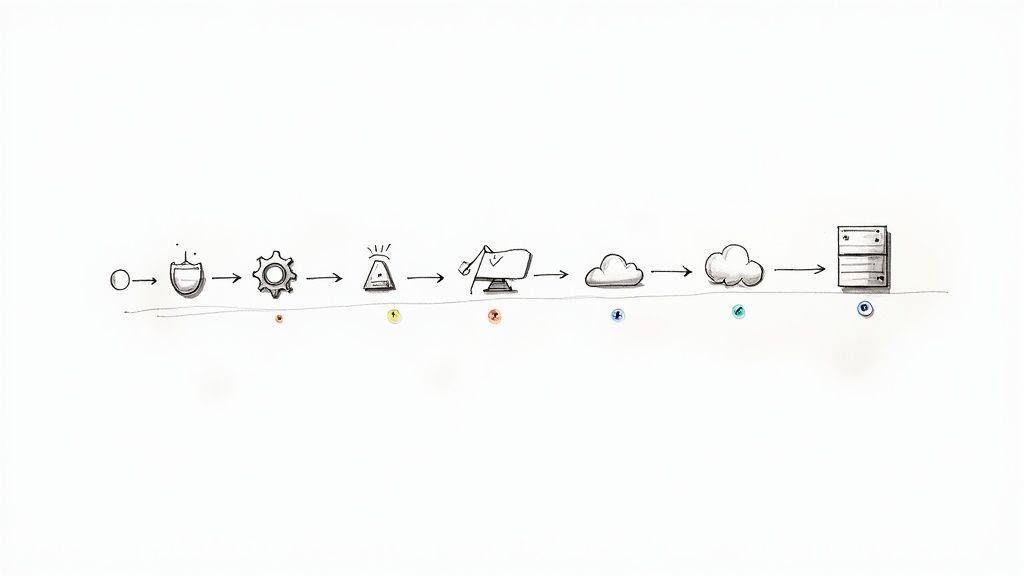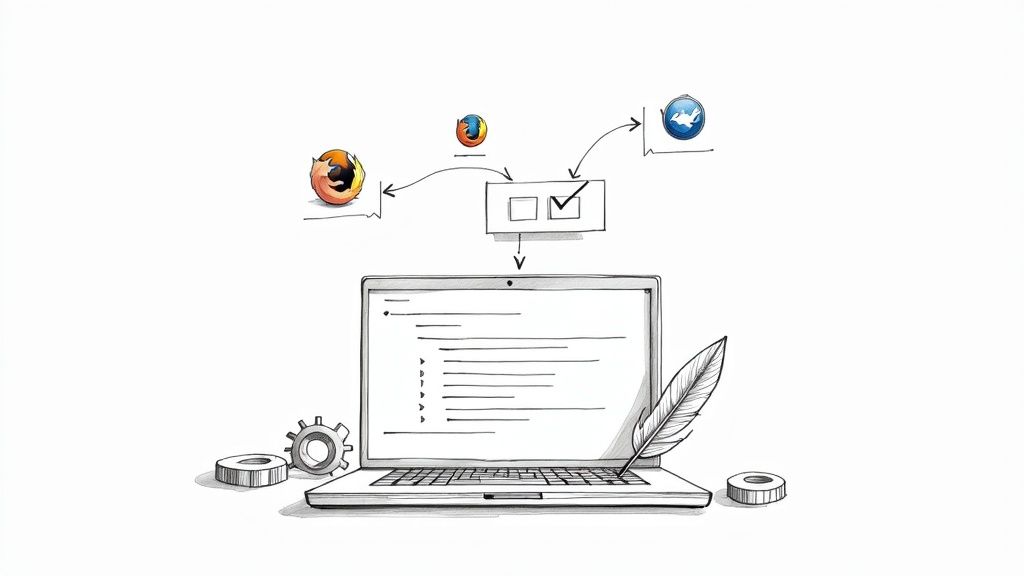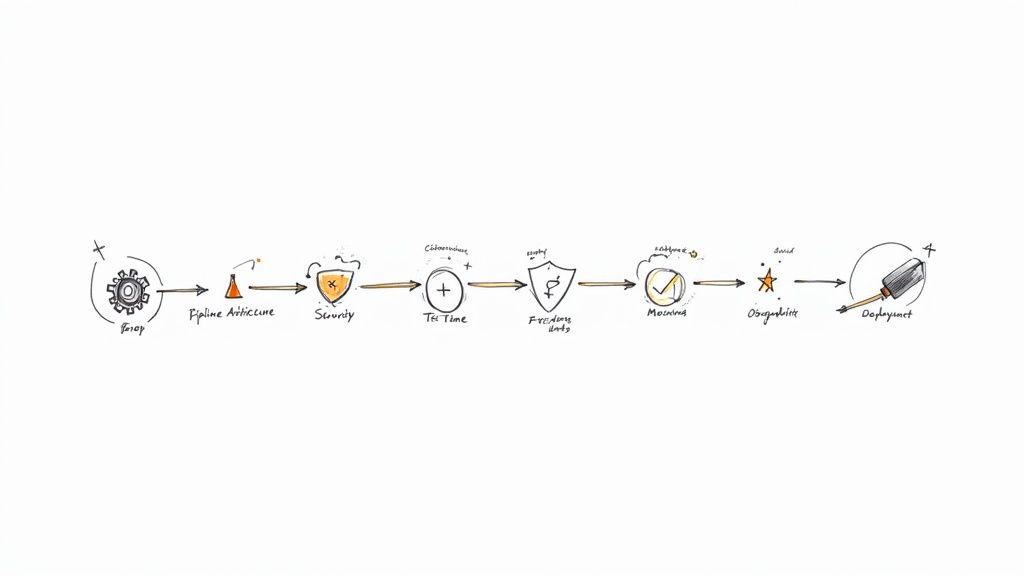GitHub Universe 2021: Rewind

As of June 2022, GitHub has over 83 million developers and more than 200 million repositories, including more than 28 million OpenSource repositories. GitHub Universe is the flagship event of GitHub. In the conference, speakers announce the changes it has made in the GitHub ecosystem.
Why should GitHub universe matter? Well the statistics mentioned shows its user base. If you are developing softwares for sometime or planning to get into Development I am pretty sure, you have heard about it.
Universe 2021 🌍
GitHub Universe 2021 explored DevOps, Open Source Communities, Security and Developer Productivity. In 2021, GitHub Universe shipped more than 20,000 improvements to GitHub for developers both in OpenSource Communities and Enterprise teams.
There were a lot of many interesting expected and unexpected announcements, demonstrations and workshops conducted during the span of 2 days. If you were not able to attend, feel free to continue reading to gain the insights.
GitHub's Innovation for 2021 💪
GitHub focused more on social coding platform an all included developer and organisation environment in the cloud. With new features like CodeSpaces, a complete security dashboard and full-featured product management suite, GitHub focused on developing an application with code at the center of everything.
Before 2021, when we used to build a product we started with the code, we cloned it from cloud git repositories, it used to get copied onto multiple machines and servers, we plugged in different tools all of which needed access and the code itself passed between all these different services. The process was not only inefficient but we dealt with multiple different environments and adding multiple different variables producing compatibility errors inevitable. We had no visibility where our code ultimately sprawls too, which resulted in Intellectual property and security concerns.
Currently, with their innovation we can get the first glimpse at an organisation where code is central and all services form around it. Everything is hosted in the cloud which eliminates compatibility issues, giving administrators ultimate control and allowing the code to stay in a single place.
Renovation from 2021 🚀
The changes which GitHub brought to its ecosystem focused on improved daily workflow, developer cloud and security at each step. The changes made transformed the developer experience.
CodeSpaces 🌤
CodeSpaces were first introduced in 2020, that continued to grow. Previously, CodeSpace was a development environment in the cloud and while right now, it is mostly a cloud-hosted, browser-compatible version of VSCode. GitHub is making significant improvements to make this an environment developers never have to leave.

With CodeSpaces we can now create a pre-configured environment specific to a particular organisation. Everything is managed with a single devcontainer.json file. Moreover, we can customise our own work environment to fit exact needs, eventually we never need to leave GitHub.
Even if VSCode is not our preferred code editor, GitHub has now integrated the GitHub CLI to CodeSpaces so anyone can manage code spaces including direct SSH access.
CodeSpace makes coding environment uniform for developers. In a team, developers are generally using machines with different configuration, using CodeSpace they can connect with machine with 32 cores and 64 gigs of ram. This not only makes setting up and coding much easier, but it also gives everyone the same environment to work on. Currently, CodeSpaces are available for teams and organisations.
GitHub Copilot 👩👦
Github Copilot was introduced earlier in 2021. Upon its release, the tool faced humongous numbers of controversies. Copilot is an AI backed product that suggests code in real time based on the code developers have written. In other words, GitHub Copilot is a Grandmaster coding along with us in our code editor.

While Copilot is still limited to VS Code, GitHub announced new and upcoming integrations with IntelliJ and JetBrains.
Command Palette 🧑💻
A new GitHub surface called the Command Palette is intended to make it easier for users to utilise GitHub and run time-saving tasks. We can easily navigate to your organisations and repositories and search for pull requests, problems, projects, files, and other items there.

We can now access the Command Palette using Command + K on Mac and using Ctrl + K on windows.
And if we then press > we enter the command mode, where we can execute commands to optimise our workflows, all without lifting our hands from the keyboard.
GitHub Issues ䷢
In the software development cycle, work is generally tracked using GitHub issues. It is believed with the upgradation of the platform it can substitute Jira or Asana.
Although, it started as a way to put forward issues within OpenSource projects. With the subsequent improvements it is believed GitHub issues will be maturing into a full featured product management suite.
As it had worked before, we can now start with an idea, create a task list and convert these into issues and track them. But with the tool upgradation, bigger projects can be broken down and worked upon with ease.

GitHub issues now have the feature of progress tracker. Taking the tour of the conference also pointed out a spreadsheet-like environment where we can list tasks and convert these to issues similar to task list.
But as work goes on we can create new views of these tasks. Including them or viewing them in a visual canvas. The canvas looks pretty much similar to Trello, Jira or Asana.

The new version of GitHub enables us to create tasks directly in GitHub. Leaving the coding environment to create functional workflows is not required anymore. It may not have all the capabilities of its eerily similar competitors, but it has the ability to significantly improve GitHub users' speed and efficiency. Anyone may now access it, too!
GitHub Enterprise 🏫
Even while GitHub has always been a leader in the field of social and open-source coding platforms, they have made significant investments in the business sector. Enterprise server 3.2 has now been released with over 70 new features. In order to establish themselves as an organization's one-stop shop, GitHub is developing this product to combine security, management, and coding tools into a single, comprehensive solution.
Although its features now fall short of what a multi-vendor model can accomplish, this conference has shown an incredible rate of development that is definitely attributable to the emphasis GitHub is placing on this new business plan.
GitHub Actions

With the help of the new workflow visualiser, we can now deploy tasks to staging and subsequently production using a single workflow and target them to specific environments.
Secret Management
Enterprise 3.2 has also added some much-needed secrets management updates.
“Administrators can manage secrets directly from within GitHub environments so your dev teams can deploy changes quickly without needing access to production secrets”
– Maya Ross Senior Director
Secret Scanning
Last year, GitHub started rolling out several significant security features, such as the ability to search for secrets.

Although there are presently just a few secrets that can be found using this tool, they have included a new function that allows us to design our own secret parameters using unique patterns. Even though it requires a lot of work and burdens the administrator, this functionality is crucial because there are few patterns that are now supported. Additionally, it restricts its power to only pre- and post-fixed secrets and disallows the ability to scan for generic secrets.
Project Automation
With the advancement of projects proper planning and automation flow is required. GitHub successfully managed to create an in-house automation tool. Before, this to automate a project board we had to reply on GitHub Actions.

Now users are able to simply turn on automation that helps them keep their project boards up-to-date without needing any manual intervention.
Cumulative Flow Diagrams
GitHub has introduced CFDs in 2021. Which lets users visualise progress, remaining work and throughput of specific project. Currently, this feature is not available to everyone.

Code Scanning
With the recent addition of Ruby to the list of supported languages, GitHub has also included severity levels and search features to make it simpler to concentrate on the most crucial vulnerabilities to your team.
The security dashboard, however, demonstrates GitHub's genuine desire to be the one-stop shop for security by allowing you to see the full picture of your company's security risk in one view. This is more significant than these particular security enhancements.

GitHub Communities 🏘
Although the core of GitHub is a platform for social and community coding, enterprise development received a lot of attention in 2021. Nevertheless, there have been some community-related advancements accomplished as well, even though they are largely nice but tiny advancements in comparison to the ground-breaking initiatives they are working on.
“On their own these things can seem small, but when you add them up they can make a big difference”
- Nat Friedman CEO
Discussion Labels
Previously, the use of IRCs made the contributor bounce back multiple time from one platform to another. Building Discussion Labels is GitHub's way of creating channels to discuss in the same platform where developers are comfortable coding.
Maintainers have been keeping their spaces organised with discussion labels. For instance, they are adding labels for, topic, status and which release the decisions falls under.

Although, replacing IRCs completely would still take time. But according to the progress it is expected to compete with Slack and Discord in sometime.
Read and Unread Comments
Reading through text and moreover getting multiple replies in a thread or start of a new discussion, it makes extremely difficult to keep a track of comments contributors have written. But, with new discussions we can skip ahead to comments we haven't read.
Discussion Polls
Working in a multi-cultured team can only be successful when everyone in the community can give their opinions. Polls have often been considered the best option to get the cumulative opinion from the community.

Previously, Community leaders or Business leaders used bots in IRCs to get the opinion, but post 2021 they have the option to create the Polls in GitHub's Ecosystem itself. This will undoubtedly be a wonderful tool to stay in contact with the community and decide which route to go in.
For schools 🎒
The tools we need to start a career in technology are now much more accessible. Introducing GitHub Global Campus, a new space for students to interact, produce work, and develop on GitHub. More than just tools and resources make up Global Campus. Additionally, it serves as a central hub for connecting with a community of more than 1.7 million students worldwide. Not just that. Students now have it simpler to interact with Pack partners and take part in activities thanks to Global Campus.

Not only students even teachers and hackathon organisers would be benefited from GitHub Classroom. Giving access to premium softwares for free, GitHub is trying to build a GitHub habit among students.
GitHub Overall 🥷🏻
GitHub built its reputation on being fast and easy to use. As the home for open-source software, it’s sometimes viewed only for startups and small teams. But did you know that GitHub provides a great platform for enterprises of all types, in all industries, to build their best solutions, deliver value to their users, and enable the art of the possible through software innovation.
Github is undoubtedly revealing to us their strategy for gaining global dominance, and I for one am enthusiastic about it. Moving from a dispersed developer and organisational environment to a centralised single cloud-based service-centered from code that embraces development, administration, and security is a strong indication that the focus is changing away from their vibrant community and toward enterprise features. Since the last Universe, almost all advancements have been directed at this.
Prediction for 2022 ⚖️
In addition to making the process from coding to deployment simpler, GitHub has particularly focused on making it entirely internal to GitHub. Undoubtedly, GitHub is now directly competing with GitLab and Atlassian, and we can even see some competition with AWS, such as the AWS secrets manager. How long until we can host our application with them too, if GitHub's objective is to provide a one-stop shop for delivering software? Due to the fact that both Azure and GitHub are controlled by Microsoft, I believe we will start hearing whispers about GitHub's AWS and GCP rival offering in the upcoming year.

The whole schedule of GitHub Universe 2022 is available. It's time to review the more than 80 presentations taking place on November 9 and 10 across many subject tracks, including cloud, security, community, and AI, with fewer than 15 days until the event.
There is a session for everyone, regardless of your level of experience in the field. Where else can you get the same kind of education from GitHub professionals, open source contributors, and other business titans?
To know more, register yourself right-away. Read the agenda to reserve the time slots and get first hand information about the changes from 2022. Also, have you tried Mergify yet? Come on, it's one of the coolest tool to have in your GitHub workflow. It is completely integrable to GitHub 💪





